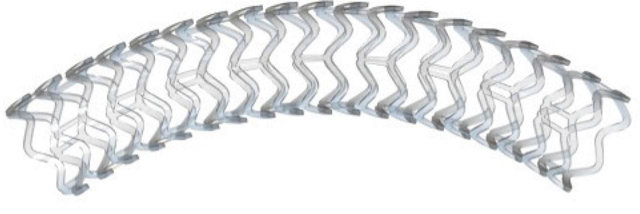Reva scaffolding study yields good results
As some companies have worked to improve drug-eluting stents by making them bioresorbable, some voices in the coronary intervention space have expressed concern over the rates of late stent thrombosis and repeat percutaneous coronary intervention seen with the devices.
In a study published in a recent issue of JACC: Cardiovascular Intervention, Reva Medical‘s Fantom coronary bioresorbable vascular scaffold succeeded after six months. The device was designed to address challenges like strut size and expansion capacity, the researchers wrote.
The sirolimus-eluting device was studied with 117 patients with single de novo native coronary artery lesions. The primary angiographic endpoint was mean late lumen loss at six months. The study’s primary clinical endpoint was major adverse cardiac events at six months, including cardiac death, myocardial infarction or clinically driven target lesion revascularization.
Short-term technical success, short-term procedural success and clinical procedural success was met in 96.6 percent, 99.1 percent and 99.1 percent of participants, the authors reported. The mean in-stent late lumen loss was 0.25 millimeters (+/- 0.40) after six months. The team reported observing binary restenosis in two patients.
Major adverse cardiac events happened in three patients within the six-month study period, including two myocardial infarctions and two target lesion revascularizations.
Scaffold thrombosis was seen in one patient, the team added.
READ MORE: interventions.onlinejacc.org/content/10/18/1832?sso=1&sso_redirect_count=2&access_token=


